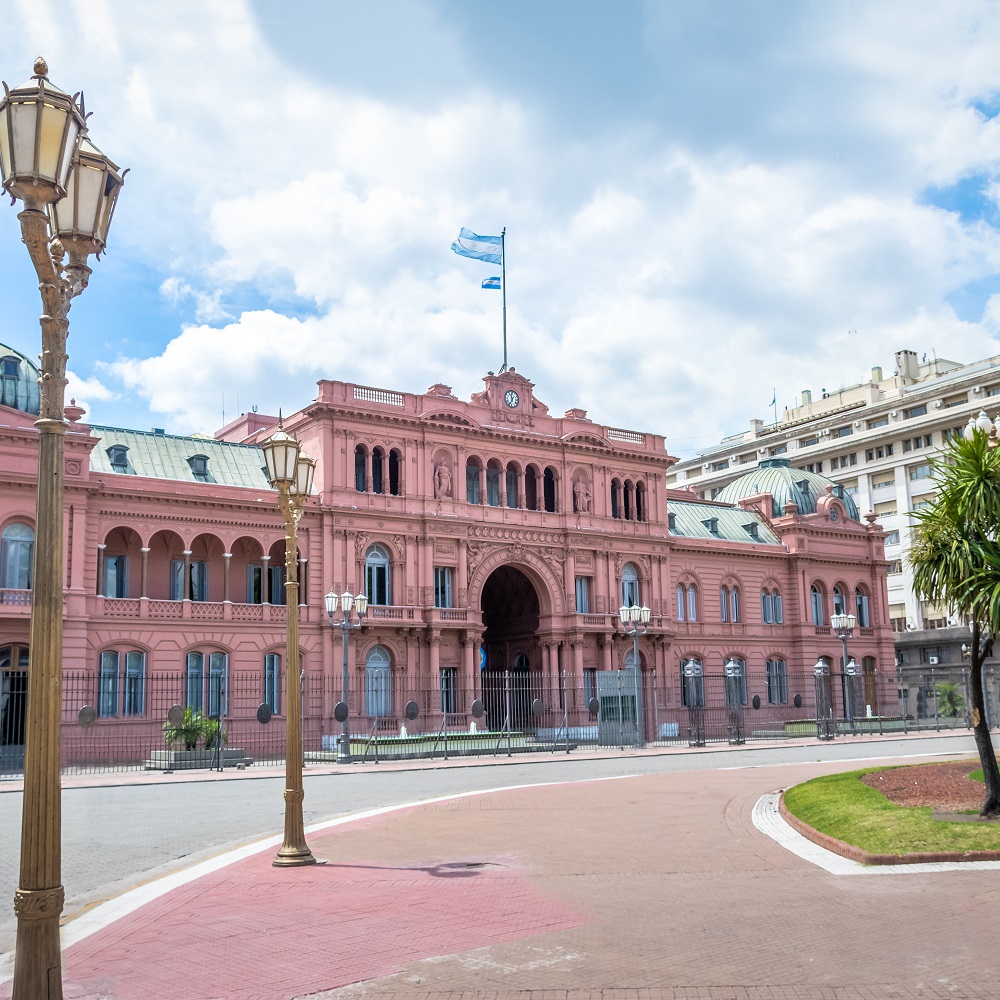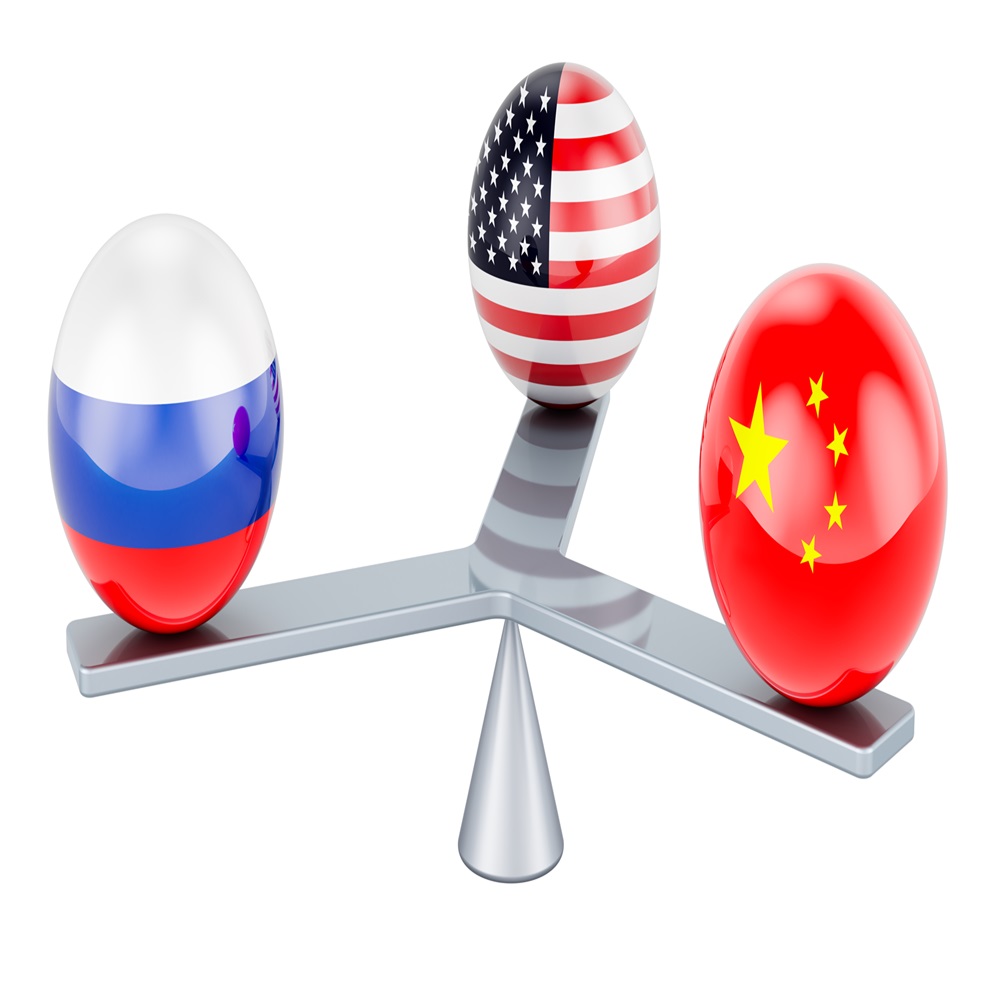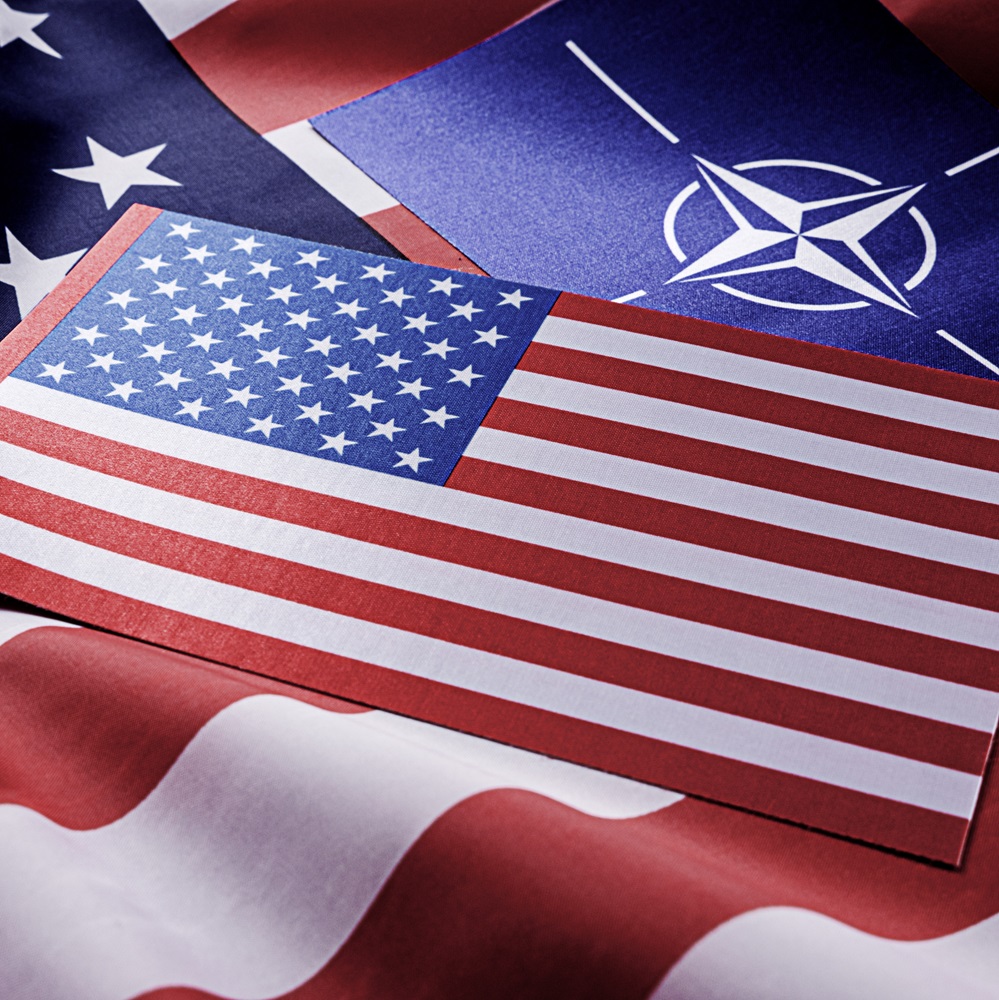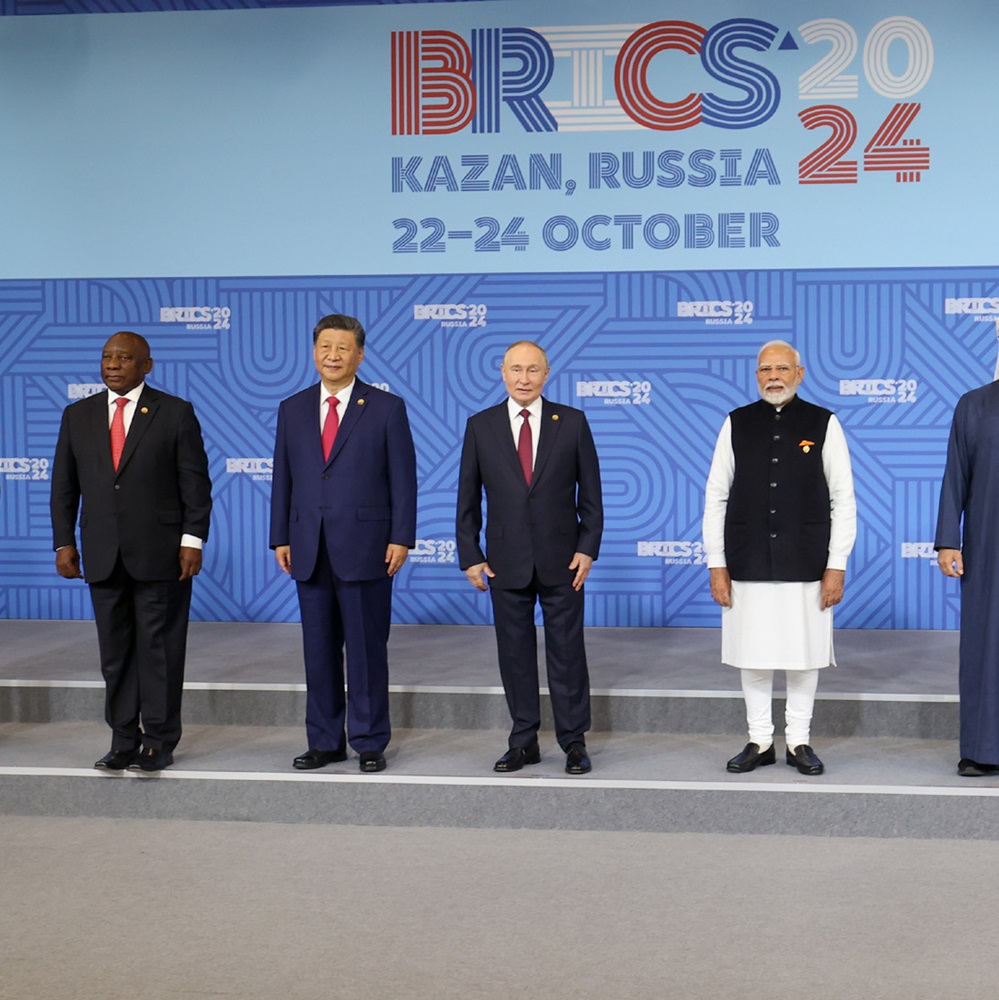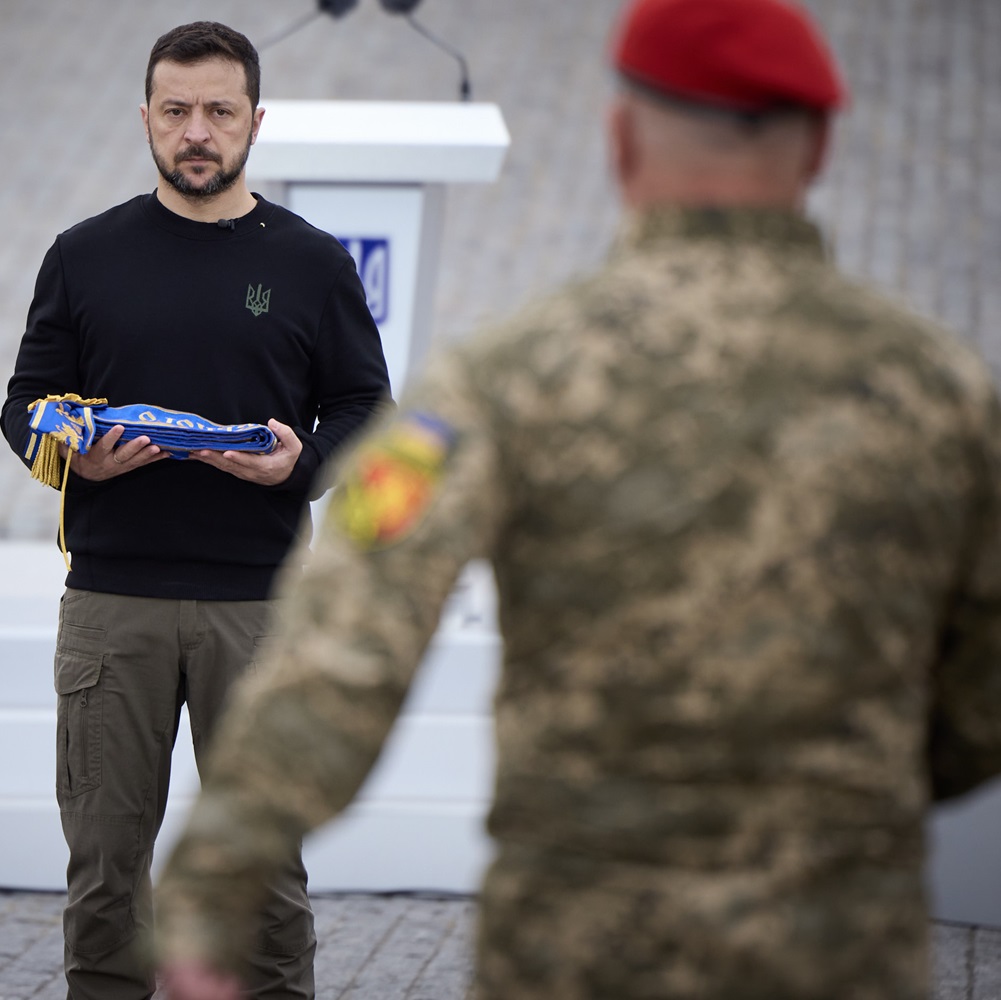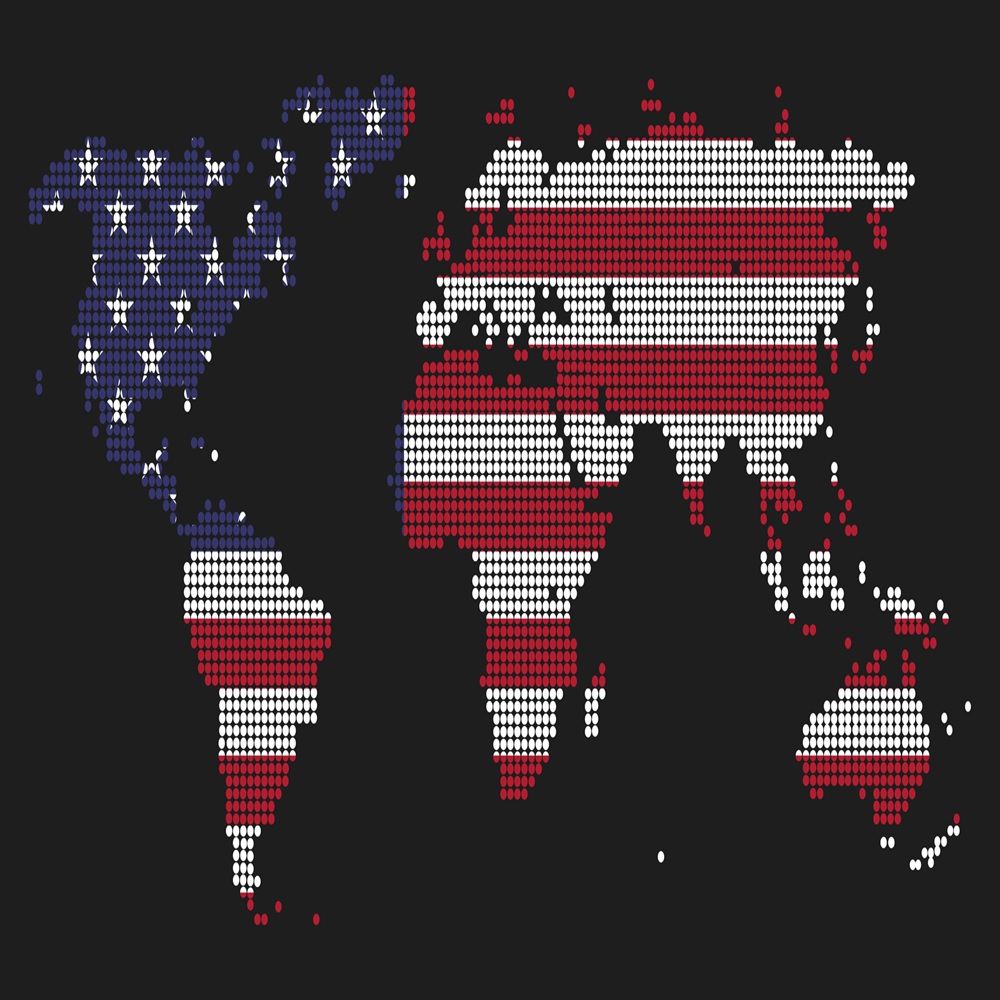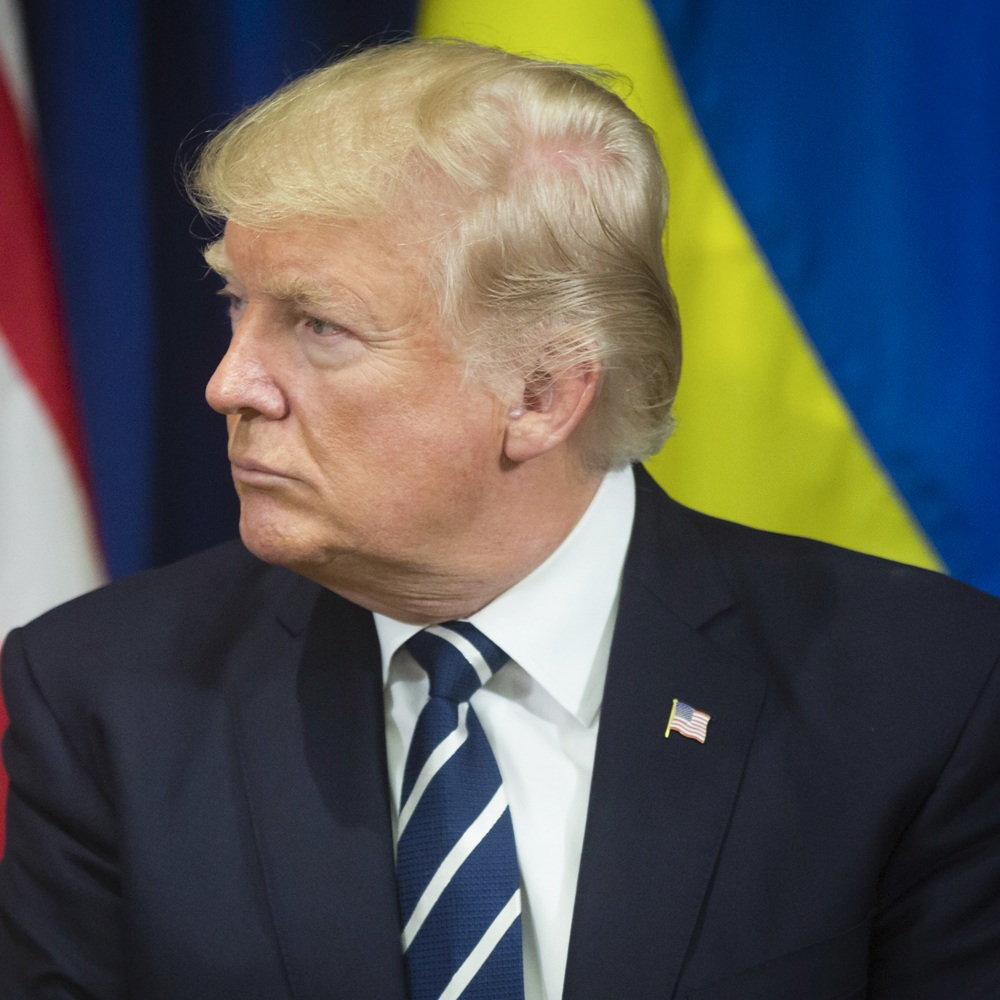The Trump Effect
by Krzysztof Śliwiński
Leer en español
In Deutsch lesen
Gap
اقرأ بالعربية
Lire en français
Читать на русском
Abstract This analysis focuses on possible short and medium-term effects of Trump’s election as the 47th President of the United States. This paper starts with a brief account of Trump’s first presidency and then continues to account for major challenges that Trump’s administration will have to face domestically,The central part of the analysis focuses on the geopolitical consequences of Trump’s election. In particular, the author looks at Europe (the ongoing war in Ukraine): Middle East and Far East – especially China.The paper concludes with the author's conviction that the next few years will bring decisive changes likely to usher in the new world order.Keywords: Trump, US, Europe, Security, Geopolitics Introduction Donald Trump's election as the 45th President of the United States in 2017 had significant and far-reaching effects on world politics, marking a departure from previous administrations' approaches to foreign policy and international relations. Trump's presidency shifted from globalization to isolationism, protectionism, and nationalism (Kawashima, 2017). His "America First" strategy emphasized unilateral action and challenged the liberal international order the United States had led and protected since World War II (Mansbach, 2021). This approach has strained relationships with traditional allies, particularly in Europe, while simultaneously raising authoritarian leaders (Mansbach, 2021). Interestingly, Trump's election immediately negatively impacted trust in the U.S. government in Latin America, as demonstrated by a regression discontinuity design study (Carreras et al., 2021). Additionally, his controversial policies, such as the trade war with China, have had significant impacts on the global economy (Sahide et al., 2024). The Trump administration's foreign policy towards the Islamic World was notably less friendly compared to the Obama era, causing tensions in US-Islamic World relations (Bahari & Sahide, 2022). There seems to be a consensus that Trump's presidency accelerated societal processes, undermined democratic institutions, and encouraged hyperpartisanship within political institutions (James, 2021). While he did not always succeed in implementing major policy changes or fulfilling campaign promises, his leadership style and policy decisions significantly altered the global perception of the United States and its role in world politics, creating what some scholars describe as " a more dangerous world" (Mansbach, 2021). Admittedly, Trump does not seem to be exceptionally hawkish when it comes to using military tools in the conduct of U.S. foreign policy. Let us remember that Barak Obama (Democratic Party), who was awarded the Nobel Peace Prize, ordered airstrikes in seven different countries (Afghanistan, Pakistan, Libya, Yemen, Somalia, Iraq and Syria) (Liptak, 2014). During first Trump’s presidency, no new campaigns were started, although the intensification of the existing ones allegedly increased. Ultimately, it was Trump who was mainly behind the withdrawal of the U.S. troops from Afghanistan. Trump 2.0 November 2024 Presidential elections brought sweeping changes to the American political kaleidoscope. Donald Trump took a decisive victory over the Democratic candidate, Vice-President Kamala Harris, securing 312 electoral votes (with 270 being a victory threshold). Republicans also won the Senate with 52 seats against 47 and the House with 218 seats against 212. (Election Centre 2024). This is arguably one of the most important political events in the world in 2024. Already Trump’s declarations regarding the first decisions to be taken once sworn in office on the 20th of January next year, plus his appointments for top offices in the U.S. administration, have caused a furore – a phenomenon referred to by many as the so-called ‘Trump Effect’. As much as political scientists, cognitive anthropologists or psychologists usually use this term to refer to racially inflammatory Elite Communication (Newman et al., 2020), this short analysis will look at the tectonic shifts in international relations, international security system and geopolitics that have already happened or are likely to occur after the 20th of January 2025. U.S. – politics Undoubtedly, the U.S. economy, society, and political system are in deep crisis. Economically, the Americans have been doing worse than ever since the Second World War. Inflation is rampant; economic inequality is very high; unemployment is on the rise; the state of infrastructure is relatively poor, and the level of public services is far from desirable, whereas taxation is reaching new heights amidst a slowing economy and diminishing number of small and medium enterprises (USA FACTS). Societywise, the problems are equally severe. According to Pew Research, the top issues facing the U.S. in this category are in the order of importance from top to bottom: the affordability of healthcare, drug addiction, illegal immigration, gun violence, violent crime, the state of moral values, the quality of public k-12 schools, Climate change, international terrorism, infrastructure condition, domestic terrorism and racism (Pew Research Centre, 2024). One should also add here the rising “wokeness’ of the American educational system, which poses a great challenge to the cohesion of the society and its future in terms of military power. Politically, the picture is not better. According to the same research institution (Pew), the biggest problems that the U.S. political system faces are: political leaders do not face the consequences if they act unethically, it is difficult to find unbiased information about what is happening in politics, Congress accomplishes less than people give it credit for, the Federal Government does less for ordinary Americans than people give it credit for. Other problems include the role of special interest groups and lobbyists in policymaking, the cost of political campaigns and the animosity between the Republicans and the Democrats, which, in consequence, causes the inability of the political system to solve critical societal problems (Pew Research Centre, 2023). The first and foremost task ahead of Trump is to rectify problems at home. His Agenda47 (Republican Platform) declares 20 core promises: seal the border and stop the migrant invasion, carry out the largest deportation operation in american history, end inflation, and make america affordable again, make america the dominant energy producer in the world, by far, stop outsourcing, and turn the United States into a manufacturing superpower, large tax cuts for workers, and no tax on tips, defend the constitution, the bill of rights, and fundamental freedoms, including freedom of speech, freedom of religion, and the right to keep and bear arms, prevent world war three, restore peace in europe and in the middle east, and build a great iron dome missile defense shield over our entire country -- all made in america, end the weaponization of government against the american people, stop the migrant crime epidemic, demolish the foreign drug cartels, crush gang violence, and lock up violent offenders, rebuild cities, including washington dc, making them safe, clean, and beautiful again, strengthen and modernize the military, making it, without question, the strongest and most powerful in the world, keep the U.S. dollar as the world's reserve currency, fight for and protect social security and medicare with no cuts, including no changes to the retirement age, cancel the electric vehicle mandate and cut costly and burdensome regulations, cut federal funding for any school pushing critical race theory, radical gender ideology, and other inappropriate racial, sexual, or political content on children, keep men out of women's sports, deport pro-hamas radicals and make college campuses safe and patriotic again, secure our elections, including same day voting, voter identification, paper ballots, and proof of citizenship and lastly unite the country by bringing it to new and record levels of success (Agenda 47). International Politics Internationally, Trump faces many challenges. His presidency will have to address three primary regions defined geographically: Europe, the Middle East and the Far East. - Europe As far as Europe is concerned, the most pressing issue is the war in Ukraine. During his campaign, Trump repeatedly declared that his administration's support for the continuation of the U.S. support for the war effort against Russia would be terminated during the first 24 hours of his presidency (Hansler, 2024). As a consequence, shortly after Trump’s winning the White House race, the outgoing administration under POTUS Joe Biden finally allowed the Ukrainians to attack Russian territory with American long-range ballistic missiles (ATACMS), which allegedly came in as a response to the North Korean decision to send its troops to support Russian soldiers against Ukraine (Entous, Schmitt and Barnes, 2024). Next, in counter-response, President Putin of the Russian Federation signed a new nuclear Doctrine into power. Chillingly, it declares that Russia may use its nuclear weapons against any nuclear state, even in case of a conventional attack (Associated Press, 2024). As of the beginning of December 2024, the media are full of reports of an alleged concentration of Russian troops near the Ukrainian border, fueling speculation about an imminent mass invasion, this time with cities such as Kyiv being targeted in a conventional terrain operation (Bodner, De Luce and Smith, 2024). One can only speculate what all this means and how far we are from the outbreak of the III World War (Sky News, 2024). Some things are, however, more or less evident. Firstly, the current escalation of war in Ukraine is likely a direct effect of Trump's winning and his declaration to end the war as soon as possible. The more the Russian troops advance in the field, the higher they can bid once the peace talks begin. Similarly, the more complex the situation in the field (Biden’s decision regarding the use of ATACMS), the more challenging it will be for Trump and his administration to achieve peace. Knowing the radically different approach to conflict with Russia of President Trump, the outgoing administration and national security advisors most likely wanted to achieve militarily as much as possible before they were ousted from their jobs. Secondly, Trump declared on numerous occasions that if European members of NATO want to continue their support for Ukraine, they should take the whole responsibility. He singled Germany, France, and Poland out. Poland, for that matter, enthusiastically agreed to carry on the baton and declared that it was ready to bear the heavy burden. In the words of Deputy Foreign Minister Andrzej Szejna, when participating in a radio broadcast, “We [Poland] are ready to take over the large part of the costs of supporting Ukraine” (Nczas Info, 2024). At the same time on the 3rd of December, the new Secretary General of NATO – Mark Rutte, during his meeting with the U.S. Secretary of State Antony Blinken, openly declared: “The immediate priority must be to provide more arms to the country's forces as Russia gains territory along the battlefront in eastern Ukraine.The [Ukrainian] front is not moving eastwards. It is slowly moving westwards. So, we have to make sure that Ukraine gets into a position of strength, and then it should be for the Ukrainian government to decide on the next steps in terms of opening peace talks and how to conduct them." (VoA, 2024). To sum up, it looks like the current escalation, according to theoretical models such as those proposed by Herman Kahn in 1965 – a Cold War physicist - we are at stage 12 of 44 steps on the escalation ladder. As comforting as one might think it is, let us remember that according to Kahn’s theory, a local nuclear war takes place as early as at step 21 (Tinline, 2023). As history has proved many times, it is difficult, if impossible, to wage a systemic war on two fronts at the same time. Given the economic and military challenges perceived by Trump during his first tenure as U.S. President (See: A New National Security Strategy for a New Era, 2017), China is the challenger number one for the position of the United States in the international system and especially in the Indo-Pacific region. Accordingly, China wants to reorder the area in its favour. Would it be too much of a stretch of the imagination to claim that most likely, given the context above, Trump will probably arrange for peaceful talks with Russia over Ukrainian political and military leadership heads’? What will he want? Probably Russia’s neutrality in the face of the coming escalation of the conflict between the U.S. and China. What can he offer? Probably a big part of Ukrainian territory and the amendment to the Ukrainian constitution, according to which the country should forever be neutral militarily and politically. At the same time, the American withdrawal from Europe will most probably create a void that is most likely to be filled by Germans. The vision of the current German cabinet was elaborated on August 24, 2022, by Chancellor Olaf Scholz at Charles University in Prague. It paints a broad picture of the future of the EU at the beginning of the 3rd decade of the 21st century against the backdrop of the Russian invasion of Ukraine. Among the four ‘revolutionary’ ideas mentioned by Scholz, two stand out in particular. Firstly, given the further enlargement of the European Union for up to 36 states, a transition is urged to majority voting in Common Foreign and Security Policy. Secondly, regarding European sovereignty, the German Chancellor asserts that Europeans grow more autonomous in all fields, assume greater responsibility for their security, work more closely together, and stand yet more united to defend their values and interests worldwide. In practical terms, Scholz indicates the need for one command and control structure for European defence efforts (The Federal Government, 2022). The leadership is not always openly claimed, at least verbally. Instead, the German National Security Strategy of 2023 mentions Germany's ‘special responsibility’ for peace, security, prosperity, and stability and the Federal Government’s ‘special responsibility’ for establishing the EU Rapid Deployment Capacity. (German National Security Strategy, 2023). In the same vein, German leadership posits their country as a leader in European Security, declaring the importance of becoming the ‘best equipped armed force’ in Europe (Euronews, 2022). Let us also remember that Berlin vigorously supported the latest proposal for a European army, which presumably might serve as a vehicle for further European integration towards the federalization of Europe. At the same time, the prospect of federalization will face two major challenges: firstly, the future of transatlantic relations is less than certain, especially the economic competition between the EU and the U.S. European Commission President Ursula Von Der Leyen signalled the possibility of an economic war with the U.S. as a response to Trump declared protectionism of the American economy (Berg, Meyers, 2024). Secondly, the EU is highly inefficient in energy, so the question of future energy security becomes a priority. The ongoing conflict between Ukraine and Russia and the redirection of Russian gas to China will profoundly affect the future of European economic development amid the so-called ‘Fit-for-55’ - a set of proposals to revise and update EU legislation to achieve a target of reducing net greenhouse gas emissions by at least 55% by 2030 (Fit for 55, 2024). - Middle East As of the writing of this paper, one sees the escalation of the war in Syria. According to the United Nations Office for the Coordination of Humanitarian Affairs (OCHA), “ongoing hostilities in northern Syria continue to expand to other parts of the country, endangering civilians and humanitarian workers, causing severe damage to critical infrastructure and disrupting humanitarian operations. As of 5 December, at least 178,000 people have been displaced due to the recent escalations in northern Syria, including 128,000 newly displaced and 39,000 displaced at least twice. Figures are still being reconciled, noting that UNHR and NGOs operating in the northeastern part of Syria estimate that between 60,000 and 80,000 people have been newly displaced there, including more than 25,000 currently hosted in collective centers”. (OCHA, 2024). According to international media (CBC News, 2024): ”Syria's long-running civil war came to a head Sunday when opposition forces entered the capital city of Damascus and the government of President Bashar al-Assad collapsed. Russian state media later reported that Assad and his family had fled to Moscow. Crowds gathered in Damascus to celebrate the fall of Assad's government with chants, prayers and occasional gunfire, marking the end of a regime that, between the ousted President and his father, had ruled over Syria for half of a century.” […] "At long last, the Assad regime has fallen," President Biden said Sunday afternoon at the White House after convening his national security team to discuss the developments. He said the fall of Assad presented a "historic moment of opportunity" and pledged support for Syria and its neighbours against any threats” (Ott, 2024). Syria seems to be just another litmus test of the so-called regional security complex in the Middle East. As such, the war in Syria is obviously but a puzzle in a much bigger jigsaw that includes all major powers that operate in the region: the U.S.A, Israel, Russia, Turkey and Iran to name the most obvious ones. All of the above are deeply engaged in Middle East politics for the sake of their national interests and international security strategies. All of the above deserve separate analyses. For the sake of this paper, however, the author will focus only on the U.S. According to Douglas Macgregor and Dave Ramaswamy, “The fear in many nations’ capitals is that President Donald Trump’s return to Washington might make Israel feel more confident in attacking Iran. According to Mike Evans, founder of the Friends of Zion Museum in Jerusalem, “There is no world leader Trump respects more than Netanyahu.” The evangelical leader also confides that President Trump would support an Israeli attack before his inauguration on the assumption that the destruction of Iran’s oil production facilities would devastate Iran’s economy, inducing Iran to end the war with Israel before President Trump assumes his office. This thinking by no means excludes an Israeli decision to strike Iran’s nuclear development sites as well.” (Macgregor & Ramaswamy, 2024). In their article, they state that “If America joins Israel in its war against Iran, the outcome will be a geopolitical showdown that could dramatically alter the world as we know it. It is the storm of the 21st century and, for the moment, the American ship of state is sailing right into it. “ They consequently pose four fundamental questions: 1. What is the American purpose in waging war against Iran? Is Washington’s purpose to destroy the Iranian state? To destroy its capability to wage war against Israel? To eliminate Iran’s developing nuclear capability? Or to decapitate the Iranian state in the hope that the Iranian people will overthrow their national government? 2. How will U.S. military power achieve the objectives? 3. What is the desired end state? What does the President want Iran and the region that surrounds it to look like when the fighting ends? 4. What is the strategic cost to the American people if Washington declines to participate in a regional war begun by Israel? They conclude by asking yet another, perhaps the most crucial question: what do Netanyahu’s goals mean for the health of the American economy and the stability of the international system? Can Israel survive without attacking its numerous enemies? The next couple of months are likely to bring at least some answers to some of these questions. Importantly, expert voices concerning the future of Israel seem to be abounding more and more (Teller, 2024). - China and the Far East Finally, there is a question of China. As mentioned before, Trump sees China as a major challenger to the role and position of the U.S. in the international system. The Republicans and the Democrats may be divided by numerous issues, but there is at least one regarding which they stay united. The true bipartisanship revolves around the Chinese challenge. Both parties, therefore, claim that the possibility of a systemic conflict with China is not a science fiction scenario. On November 20, 2024, a bipartisan group of lawmakers in the U.S. Congress heard that the U.S. had to prepare for a potential conflict with China by raising its defence spending to more than 3 per cent of GDP. (South China Morning Post, 2024). The recommendation came during an interactive exercise for members of the House Select Committee on China, based on a scenario predicted for 2026 and hosted by Washington-based think tank the Centre for Strategic and International Studies (CSIS). The report titled: The First Battle of the Next War Wargaming a Chinese Invasion of Taiwan, authored by Mark F. Cancian, Matthew Cancian and Eric Heginbotham opens with a chilling question: “What would happen if China attempted an amphibious invasion of Taiwan? CSIS developed a wargame for a Chinese amphibious invasion of Taiwan and ran it 24 times. In most scenarios, the United States/Taiwan/Japan defeated a conventional amphibious invasion by China and maintained an autonomous Taiwan. However, this defence came at a high cost. The United States and its allies lost dozens of ships, hundreds of aircraft, and tens of thousands of service members. Taiwan saw its economy devastated. Further, the high losses damaged the U.S. global position for many years. China also lost heavily, and failure to occupy Taiwan might destabilize Chinese Communist Party rule. Victory is, therefore, not enough. The United States needs to strengthen deterrence immediately.” (The First Battle of the Next War, 2023). They go on to claim that: “China’s leaders have become increasingly strident about unifying Taiwan with the People’s Republic of China (PRC).1 Senior U.S. officials and civilian experts alike have expressed concern about Chinese intentions and the possibility of conflict. Although Chinese plans are unclear, a military invasion is not out of the question and would constitute China’s most dangerous solution to its “Taiwan problem”; it has therefore justly become a focus of U.S. national security discourse.” China has grown increasingly assertive over the last decades and sees no reason to continue accepting a dominated world that facilitates the benefits of Western powers, especially the U.S.A. At a recent G20 summit in Rio de Janeiro in Brazil (November 2024), the President of China openly called for a multipolar world (Xinhua, 2024). In his words: “China and Brazil stay committed to peace, development, fairness and justice. We have similar or identical views on many international and regional issues. Both are staunch defenders of the basic norms of international relations and multilateralism, coordinating closely and consistently within the United Nations, G20, BRICS and other international organizations and multilateral mechanisms on crucial issues, including global governance and climate change. Not long ago, China and Brazil jointly issued a six-point common understanding on political settlement of the Ukraine crisis. Our initiative has received a positive response from the international community. China and Brazil, embracing our roles and responsibilities as major countries, have contributed to a multipolar world, conduced to greater democracy in international relations and injected positive energy into global peace and stability.” (Xinhua, 2024 b). Conclusion Taiwan has long been a global security issue and a point of concern on the geopolitical maps of the national security planners of great powers. It is not the only one, though. The war between the Koreas is formally not over (recently, North Korea allegedly sent soldiers to back Russia in its Special Military Operation in Ukraine); the American military presence in the Far East and South East Asia is likely to remain an issue, especially from the point of view of Beijing. Central Asia, with its geopolitical environment, religious activism and economic challenges, is likely to rise in importance as a chessboard for great powers. As the weight and focus of International Relations is relocating back to Asia (Euroasia rather than the North Atlantic Area), China and Russia are more likely to hold the keys to international peace and security than the United States. On top of that, one needs to look out for North Africa as a source of continuing instability and massive migration, especially to Europe. All in all, Trump’s next presidency will surely bring a lot of interesting developments, which are likely to fuel a new world order. References - A New National Security Strategy for a New Era, 2017. NSS_BookLayout_FIN_121917.indd - Agenda 47. https://www.donaldjtrump.com/platform - Associated Press, Nov. 8, 2024. “The Kremlin has revised its nuclear policy. Does that make the use of atomic weapons more likely?” https://apnews.com/article/russia-nuclear-doctrine-putin-ukraine-war-b5ee115aa2099fa247f630e16da861d8- Bahari, Diana Mutiara, and Ahmad Sahide. 2022. “The Comparison of The United States Foreign Policy Against The Islamic World Under President Barack Obama and President Donald Trump Administration.” Journal of Islamic World and Politics 6 (2): 270–97. https://doi.org/10.18196/jiwp.v6i2.13060. - Berg, Aslak and Meyers, Zach. Oct. 3, 2024. “Surviving Trump 2.0: What does the US election mean for Europe's economy?” https://www.cer.eu/publications/archive/policy-brief/2024/surviving-trump-20-what-does-us-election-mean-europes-economy - Bodner, Matthew, Luce, Dan De and Smith, Alexander. Dec. 2, 2024. “Russian troops mass on Ukraine's border. West worries this isn't like the last time.” https://www.nbcnews.com/news/world/russian-troops-mass-ukraines-border-west-worries-isnt-last-time-rcna7203 - Carreras, Miguel, Giancarlo Visconti, and Igor Acácio. 2021. “The Trump Election and Attitudes toward the United States in Latin America.” Public Opinion Quarterly 85 (4): 1092–1102. https://doi.org/10.1093/poq/nfab055. - Election Centre 2024, CNN Politics. https://edition.cnn.com/election/2024 - Entous, Adam, Schmitt, Eric and Barnes, Julian E. Nov. 17, 2024. “Biden Allows Ukraine to Strike Russia With Long-Range U.S. Missiles.” https://www.nytimes.com/2024/11/17/us/politics/biden-ukraine-russia-atacms-missiles.html- Fit for 55, European Council. Council of the European Union. European Green Deal. Accessed March 8, 2023. https://www.consilium.europa.eu/en/policies/green-deal/fit-for-55-the-eu-plan-for-a-green-transition/ - Germany must become 'the best equipped armed force in Europe', Scholz says. Euronews, September 16, 2022. Accessed March 8, 2023. https://www.euronews.com/my-europe/2022/09/16/germany-must-become-the-best-equipped-armed-force-in-europe-scholz-says- Hansler, Jennifer. Nov. 6, 2024. “Trump’s victory could mean US withdraws support for Ukraine in war with Russia.” https://edition.cnn.com/2024/11/06/politics/trump-election-ukraine-war-russia-intl/index.html- James, Toby S. 2021. “The Effects of Donald Trump.” Policy Studies 42 (5–6): 755–69. https://doi.org/10.1080/01442872.2021.1980114. - Kawashima, Shin. 2017. "Japan–US-China Relations during the Trump Administration and the Outlook for East Asia." Asia-Pacific Review 24 (1): 23–36. https://doi.org/10.1080/13439006.2017.1328800. - Liptak, James. Sept. 23, 2014. “Countries bombed by the U.S. under the Obama administration.” CNN Politics. https://edition.cnn.com/2014/09/23/politics/countries-obama-bombed/index.html - Macgregor, Douglas & Ramaswamy, Dave, Nov. 19, 2024. “Trump and the Storm of the Century. The U.S. is sleepwalking into disaster in the Middle East.” The American Conservative. https://www.theamericanconservative.com/trump-and-the-storm-of-the-century/ - Mansbach, Richard W. 2021. "America’s Foreign Policy under Donald Trump.” In, 201–34. oxford university. https://doi.org/10.1093/oso/9780197618721.003.0010. - National Security Strategy. Robust. Resilient. Sustainable. Integrated Security for Germany (2023). Federal Foreign Office, Werderscher Markt 1, 10117 Berlin. - Nczas Info. Nov. 12, 2024. “Szokujące słowa wiceszefa MSZ. Oddamy jeszcze więcej Ukrainie? „Jesteśmy gotowi przejąć dużą część kosztów” [VIDEO]”. https://nczas.info/2024/11/12/szokujace-slowa-wiceszefa-msz-oddamy-jeszcze-wiecej-ukrainie-jestesmy-gotowi-przejac-duza-czesc-kosztow-video/ - Newman, Benjamin, Jennifer L. Merolla, Sono Shah, Danielle Casarez Lemi, Loren Collingwood, and S. Karthick Ramakrishnan. “The Trump Effect: An Experimental Investigation of the Emboldening Effect of Racially Inflammatory Elite Communication.” British Journal of Political Science 51, no. 3 (2021): 1138–59. https://doi.org/10.1017/S0007123419000590. - OCHA, Dec. 5, 2024. “The Whole of Syria Flash Update No. 2 - Recent Developments in Syria (As of 5 December 2024)”. https://www.unocha.org/publications/report/syrian-arab-republic/whole-syria-flash-update-no-2-recent-developments-syria-5-december-2024 - Ott, H, Dec. 9, 2024. “What to know after Syrian rebels force Bashar al-Assad from power in a rekindled civil war”. CBC News. https://www.cbsnews.com/news/syria-war-assad-ousted-what-to-know/ - Pew Research Centre, The biggest problems and greatest strengths of the U.S. political system. Sept. 19, 2023. https://www.pewresearch.org/politics/2023/09/19/the-biggest-problems-and-greatest-strengths-of-the-u-s-political-system/ - Pew Research Centre, Top Problems Facing the U.S., May 23, 2024. https://www.pewresearch.org/politics/2024/05/23/top-problems-facing-the-u-s/ - Sahide, Ahmad, Misran Misran, and Ali Maksum. 2024. “Indonesian Media Framing against Trump in the 2020 Presidential Election.” Multidisciplinary Reviews 7 (5): 2024097. https://doi.org/10.31893/multirev.2024097. - Sky News. April 16, 2024. “Are we heading for World War Three? Experts give their verdicts.” https://news.sky.com/story/are-we-heading-for-world-war-three-experts-give-their-verdicts-13116540 - South China Morning Post, Nov. 21, 2024. “China war scenario calls for US boost in defence spending to more than 3% of GDP. China’s projected military industrial base cannot be matched without increased spending, lawmakers hear”. https://www.scmp.com/news/china/diplomacy/article/3287467/china-war-scenario-calls-us-boost-defence-spending-more-3-gdp?module=top_story&pgtype=homepage- Teller, Neville, June 28, 2024. “'The End of Israel': Building a case against Netanyahu – review. The End of Israel is undeniably thought-provoking and, in a world where exchanges of differing views is being increasingly inhibited, to be welcomed.” The Jerusalem Post. https://www.jpost.com/israel-news/article-808080- The Federal Government (2022) Speech By Federal Chancellor Olaf Scholz at The Charles University In Prague On Monday, August 29 2022. Available at: https://www.bundesregierung.de/breg-en/news/scholz-speech-prague-charles-university-2080752 - The First Battle of the Next War, Jan. 2023. A Report of the CSIS International Security Program. Centre for Strategic and International Studies. https://csis-website-prod.s3.amazonaws.com/s3fs-public/publication/230109_Cancian_FirstBattle_NextWar.pdf?WdEUwJYWIySMPIr3ivhFolxC_gZQuSOQ- Tinline, Phil. July 19, 2023. “Imagining Armageddon: the mad and dangerous ideas of Herman Kahn”. https://www.prospectmagazine.co.uk/politics/policy/defence-news/62117/imagining-armageddon-herman-kahn-nuclear-ladder- USA FACTS, How is the U.S. economy doing? https://usafacts.org/state-of-the-union/economy/ - VoA, Dec. 3, 2024. „West pushes for more Ukraine military aid, not NATO membership”. https://www.voanews.com/a/ukraine-support-in-focus-as-nato-foreign-ministers-meet/7885166.html - Xinhua, Nov. 18, 2024 b. “Full Text of Chinese President's signed article in Brazilian media”. https://www.chinadailyhk.com/hk/article/597977#Full-Text-of-Chinese-president's-signed-article-in-Brazilian-media--2024-11-18 - Xinhua, Nov. 19, 2024. “G20 Summit: Xi calls for multipolar world, inclusive globalization”. https://www.chinadailyhk.com/hk/newsletter/top_headlines/article/581033










